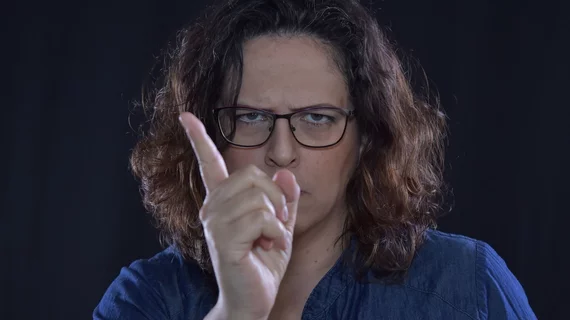Radiologists who feel nitpicked in peer review reciprocate in kind
Radiologists on the receiving end of anonymous corrections during peer-review processes are more likely to subsequently dole out anonymous corrections to other rads—and the effect is especially pronounced when the original “gotcha” was issued over a miss that had no clinical significance.
That’s according to researchers at Johns Hopkins whose study was published online Dec. 6 in the American Journal of Neuroradiology.
Senior author David Yousem, MD, MBA, and colleagues looked at anonymous peer-review submissions of 13 neuroradiologists over a two-year period. To gauge possible cause and effect, they broke up the analysis into two-week increments and checked to see if the “dinged” neurorad filed a discrepant report during the same two-week period in which he or she received one or at a later point in the study period.
The team separated discrepant reviews into four categories—detection miss, clinically significant; detection miss, clinically not significant; interpretation miss, clinically significant; or interpretation miss, clinically not significant.
They found that, over the two-year study period, rads who received a discrepant report had a 14 percent higher rate of submitting one of their own.
Moreover, of 468 total submissions, more than a third—161, or 34.4 percent—were filed in the same time block as the original discrepant report.
More eye-opening still, receiving a discrepant report over a clinically insignificant miss strongly and positively correlated with submitting a discrepant report within the same time block. And this effect was absent when the misses were deemed clinically significant.
“The receipt of a clinically not significant discrepant report leads to a greater likelihood of submitting a discrepant report,” the authors concluded. “The motivation for such an increase should be explored for potential bias.”
The study’s lead author, Paniz Charkhchi, MD, took to Twitter upon its release. “How would you react to a discrepant report especially when it’s not clinically significant?” she asked. “Motivating retributive reaction or to be more conscientious?”
To this radiologist Will Davenport, MD, replied: “Wait 24 hours before sending or dinging.”

